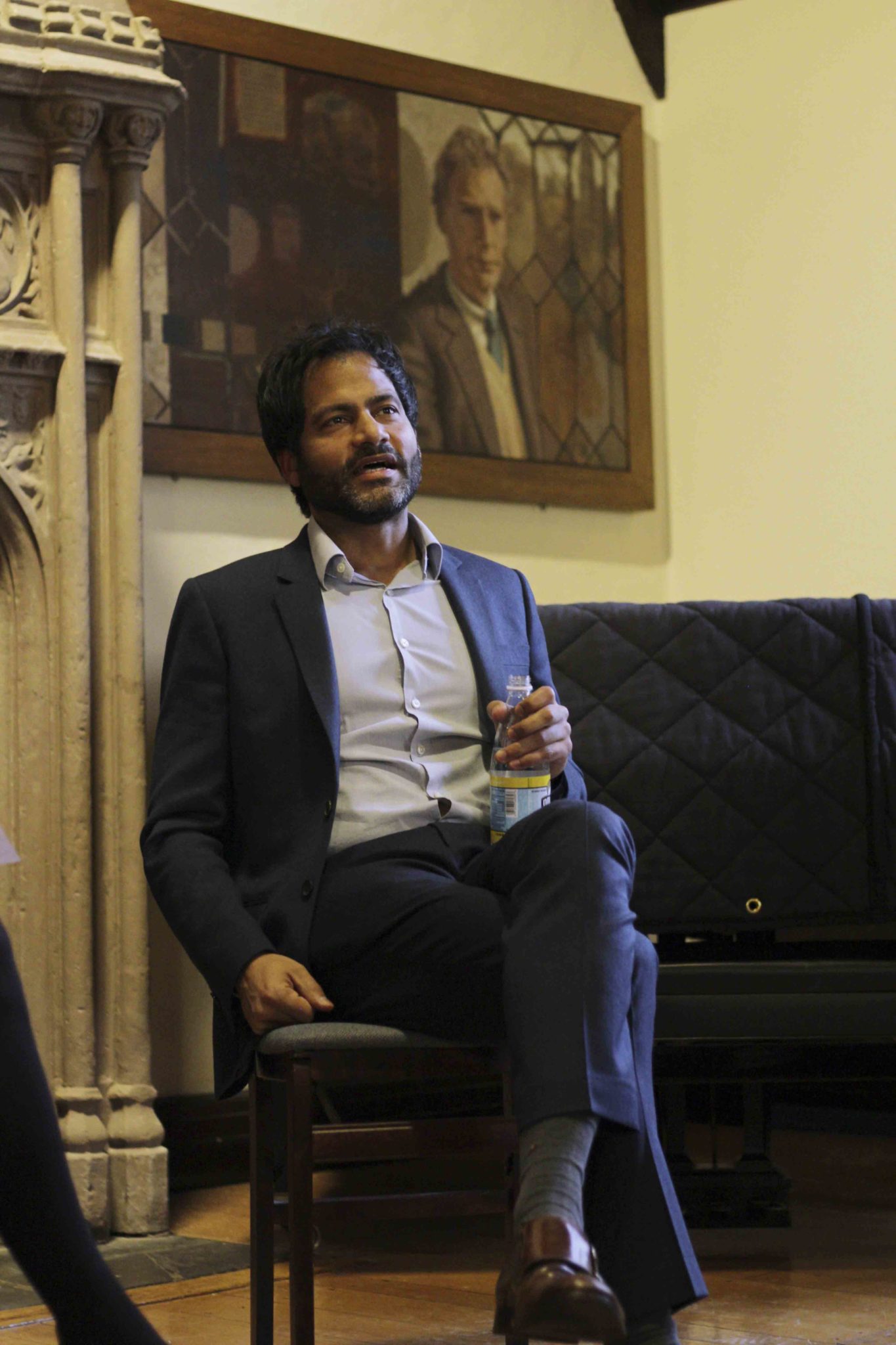
As the social media habits of President Donald Trump continue to draw criticism, Jameel Jaffer, the founding director of Columbia University’s Knight First Amendment Institute, visited campus on Monday to discuss a lawsuit the Knight Institute is bringing against Trump for his Twitter use.
Jaffer, a civil liberties attorney who worked as deputy legal director of the American Civil Liberties Union, said the Knight Institute is representing Twitter users that Trump has blocked in a suit against Trump for his Twitter blocking practices.
Speaking before a crowd of about 25 people at the Whitney Humanities Center, Jaffer noted that Trump’s reasons for blocking users vary — some insulted him directly, while others criticized his policies.
But whatever the reason, Jaffer said, Trump’s rampant blocking violates the First Amendment.
“This can be thought of as denying people information from the government,” Jaffer said. “This in itself is not a plausible First Amendment argument, but when the government opens up a public forum to everyone and then closes it to some people, that violates the First Amendment.”
In the lawsuit, filed in the Southern District of New York in July, the Knight Institute is representing seven people who have been blocked by Trump on Twitter. Last year, when the institute was representing only a couple of people in the case, it sent a letter to the White House asking Trump to unblock their clients and to discontinue his blocking practices.
After the letter received publicity, many more people wrote to the institute stating they had been blocked by the president as well.
“Some of these people had been criticizing government policy and others were attacking the president,” Jaffer said. “The joint stipulation states that these people were blocked on the basis of their viewpoint.”
According to Jaffer, the Knight Institute’s central claim is that Twitter is a public forum under the First Amendment. The government has the right to bar citizens from a public forum only if they pose a threat — and not merely if their points of view differ from those of the government, Jaffer said.
He drew an analogy to the press room in the White House, which is a public forum. If the White House were to say that registered Republicans cannot enter the press room, he said, the Supreme Court would almost certainly rule that the administration was violating the First Amendment.
In an interview with the News, Jaffer emphasized that Trump’s Twitter practices, although different than past threats to the First Amendment, are nonetheless dangerous.
“The threats confronting the First Amendment look different than what the courts were facing in the 1970s in landmark First Amendment cases,” he said. “We are only beginning to grapple with these technology changes and differences.”
Kevin McCarthy, a resident of New Haven who attended the event, said he appreciated the opportunity the forum offered to see litigation strategy from the perspective of the government and from the Knight Institute.
Dylan Aiello, another member of the audience, also said he found the talk interesting.
“I thought that the difficulty of drawing analogies that hold water is part of the exercise of legal discourse, and it is increasingly difficult to find proper analogies,” he said.
According to Jaffer, on average, Trump has used Twitter nine times per day since his election.
Isha Dalal | isha.dalal@yale.edu
Correction, Feb. 14: The story has been corrected to reflect the correct spelling of Jameel Jaffer’s first name.







